Porsche Also Offers Carbon Fiber Wheels Now
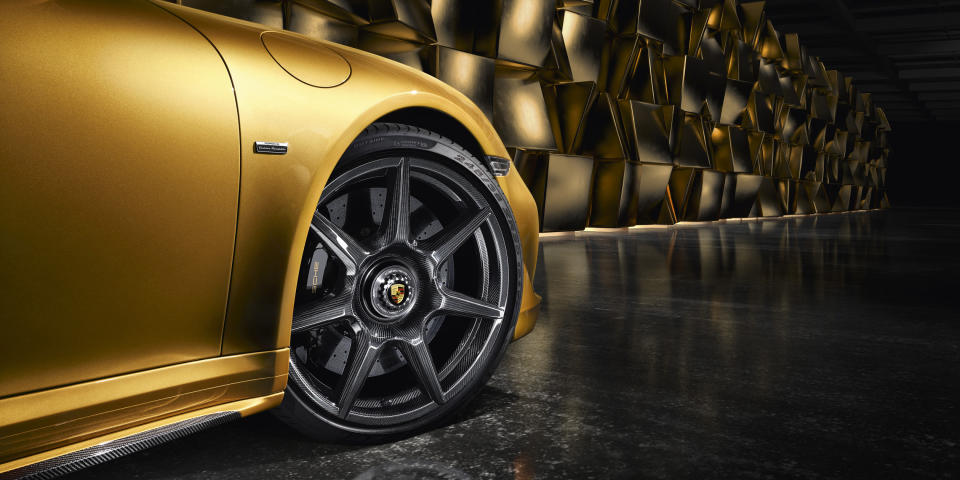
While carbon fiber wheels haven't really made their way into motorsports yet, they're already finding their way onto street cars. Not long after Australia's Carbon Revolution came up with its single-piece design, Ford has teamed up with the company to put them into limited series production for the Shelby GT350R and the new Ford GT.
Now, Porsche has decided to join the party, offering an $18,000 set for those Turbo S Exclusive Series buyers who don't fancy the golden accents of the launch car's alloys. That sounds like a lot of money, but how does it stack up against the other carbon wheels on the market?
Ford's Carbon Revolution wheels are made using a proprietary injection process, and replacement costs for each on a Shelby are $3433 a front and $4053 for a rear. That's a bargain compared to what Koenigsegg is charging for its hollow carbon fiber Aircore wheels.Two years ago, a set of those cost $64,000 plus taxes.
Although Koenigsegg's technology is a close-guarded secret, we've been told that it's using the highest quality carbon fiber, pre-impregnated with two types or resin. This carbon fiber is then applied into a negative tool using different thicknesses and wave patterns for each part. Then, it's time for them to get baked together under pressure, and the result is a wheel with hollow spokes and center piece, with a smooth surface inside.
To produce the rim base for these 20-inch carbon fiber wheels, Porsche is using a giant radial braiding machine 29.5 feet in diameter. To us, it looks similar to what Lexus came up with a few years back for the LFA's construction.
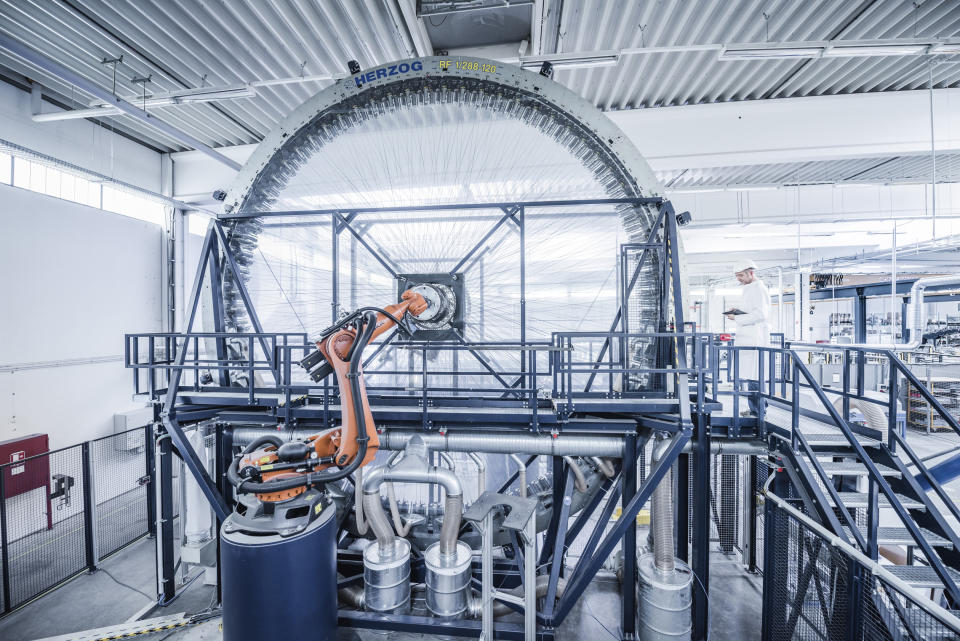
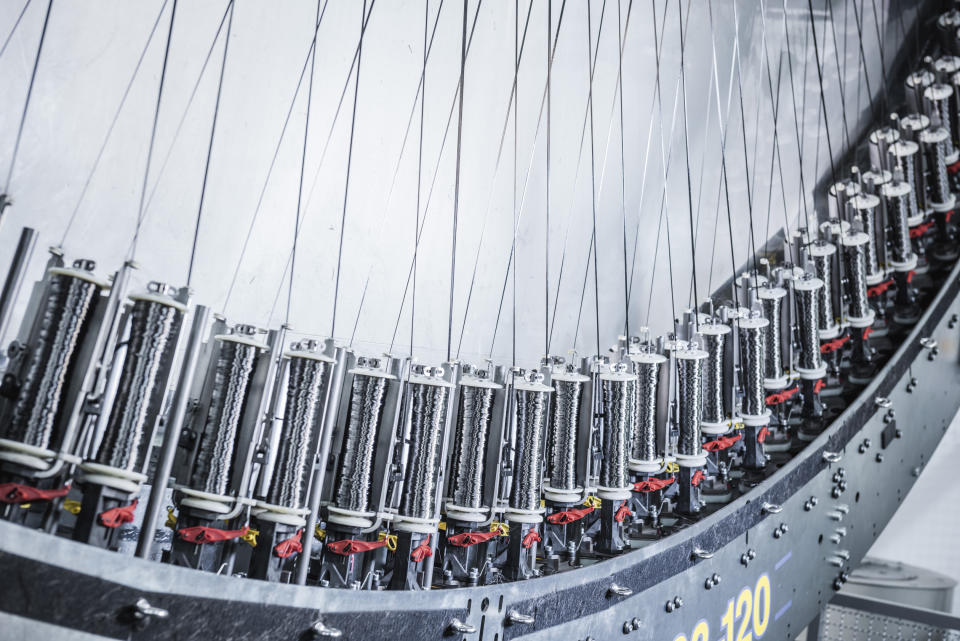
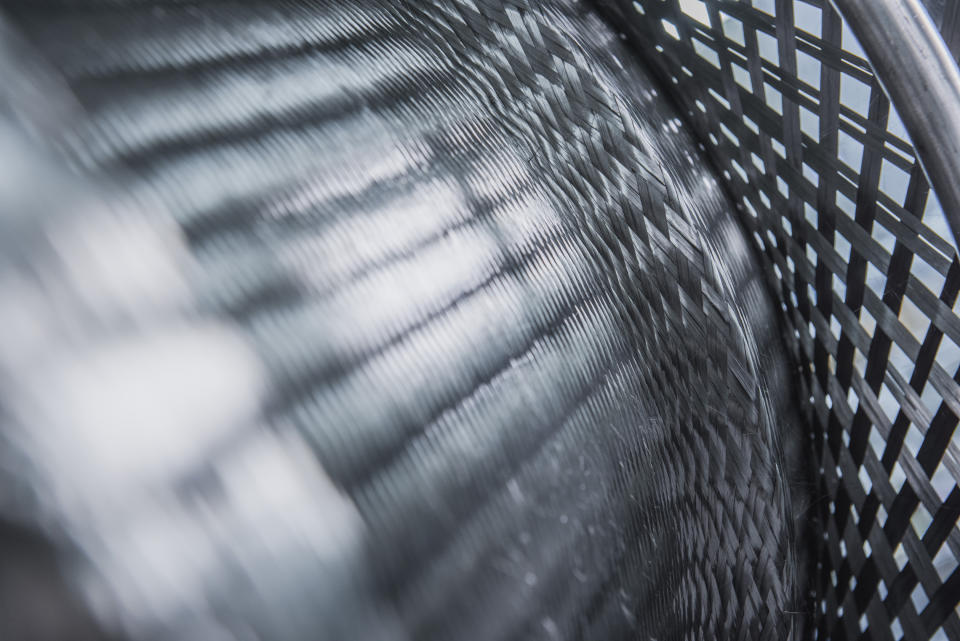
Porsche claims this braiding technology, lifted from the textile industry, offers key advantages over pre-impregnated carbon-fibre fabric, making the material structure of the carbon considerably denser and more compact. And although Porsche still needs 11 miles of fibers and 86 square feet of material cut into 200 individual pieces, the company says it's worth the effort. Porsche's carbon wheels are both 20-percent lighter and stronger than normal forged alloys, and this manufacturing process generates less waste than the traditional pre-impregnated method.
Available as an option for the 911 Turbo S Exclusive Series in the dimensions of 9 x 20 for the front and 11.5 x 20 for the rear, Porsche's carbon wheels will cost €15,232 including VAT in their home market, which converts to roughly $17,896 today.
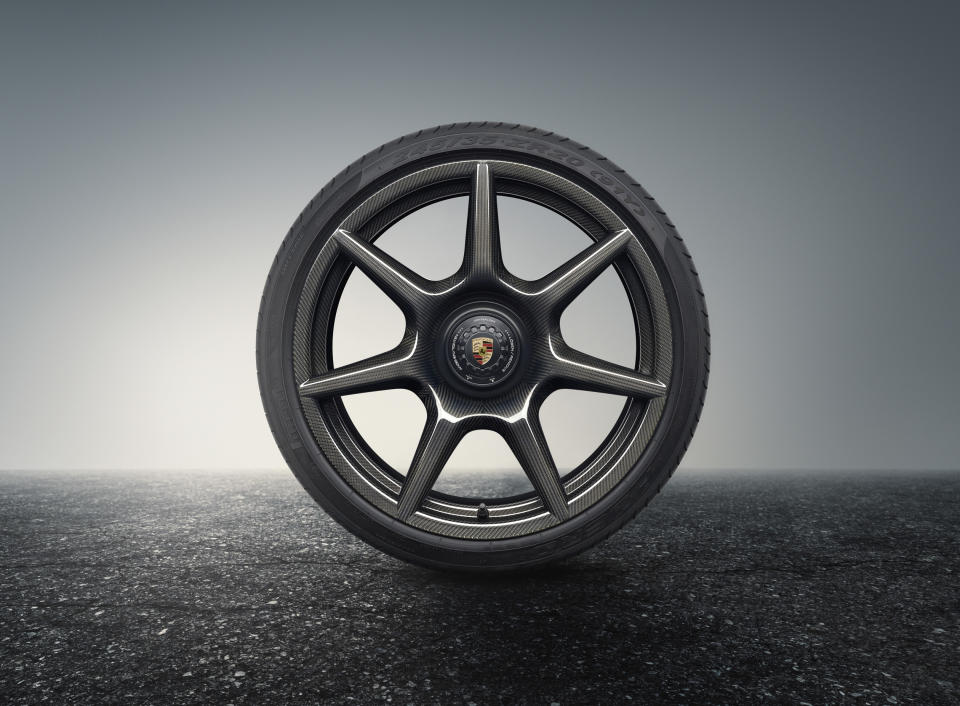
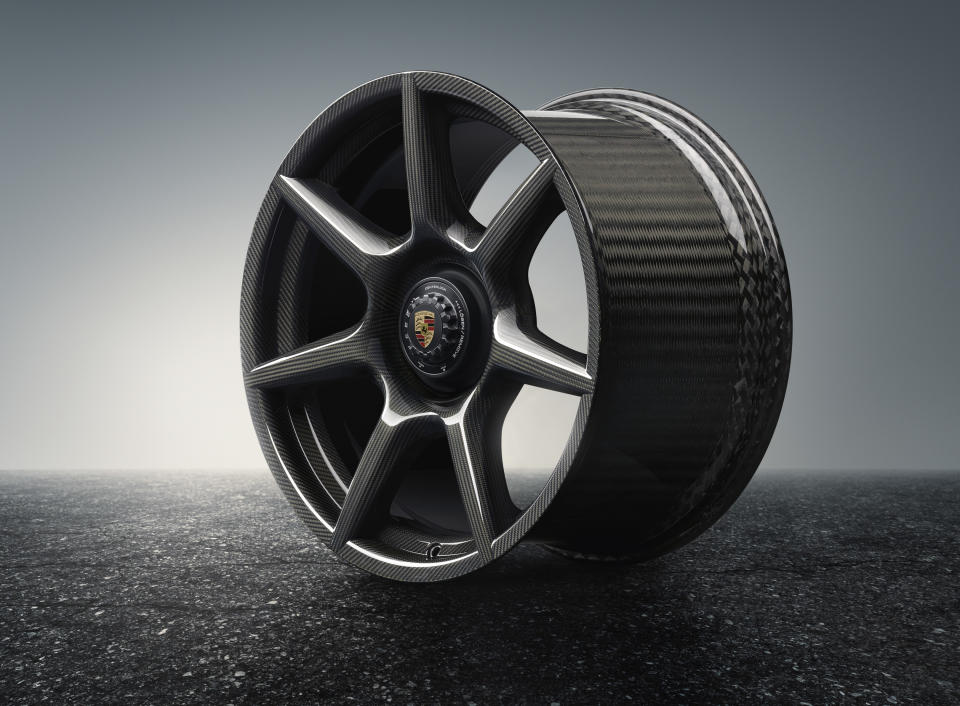
You Might Also Like

 Yahoo Autos
Yahoo Autos 